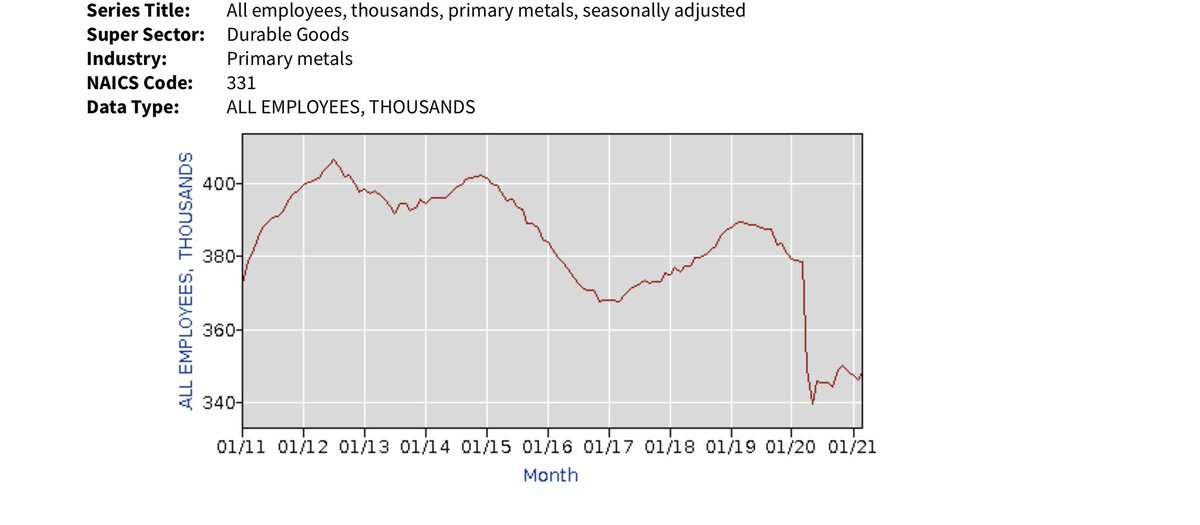We need to talk about the middle class.
For decades the idea guiding business decisions around the world has been that of an ever-growing new middle in emerging economies.
Well you can add that to the list of economic truths upended by this pandemic.
bloomberg.com/features/2021-…
For decades the idea guiding business decisions around the world has been that of an ever-growing new middle in emerging economies.
Well you can add that to the list of economic truths upended by this pandemic.
bloomberg.com/features/2021-…

The global middle class - there's 2.5bn people out there earning $10-50/day - shrank last year for the first time since the 1990s.
And as @GitaGopinath warned this week that's not the end of the story. Developing economies are recovering far slower than places like the US.
And as @GitaGopinath warned this week that's not the end of the story. Developing economies are recovering far slower than places like the US.
As @carmenmreinhart told us the global economy is "bifurcating".
It sure looks like the world is pivoting from an era of economic convergence between the rich and poor worlds to one of divergence.
But that's not just a story about data. It's about people.
Meet Ravi Sharma.
It sure looks like the world is pivoting from an era of economic convergence between the rich and poor worlds to one of divergence.
But that's not just a story about data. It's about people.
Meet Ravi Sharma.

Ravi is an engineer in India. He had been saving for years to buy his family a car - a $6,000 Maruti Alto. He was hoping to give it to his wife for their wedding anniversary last year.
When he lost his job last year as a result of the pandemic that plan went out the window.
When he lost his job last year as a result of the pandemic that plan went out the window.
Ravi wasn't alone. Auto sales in India cratered.
He found a new job but it meant moving his family and less pay. And as he told @vrishtibeniwal he has recalibrated everything:
“My life has been set back by at least three years, even as my dreams have moved beyond my reach,”
He found a new job but it meant moving his family and less pay. And as he told @vrishtibeniwal he has recalibrated everything:
“My life has been set back by at least three years, even as my dreams have moved beyond my reach,”

@vrishtibeniwal You can find impacts like that across emerging economies.
In Brazil the pandemic is raging. And it has literally changed the way Francinete Alves and her daughter eat.
She now follows budget butchers on social media in the hopes of finding a cheap steak.
In Brazil the pandemic is raging. And it has literally changed the way Francinete Alves and her daughter eat.
She now follows budget butchers on social media in the hopes of finding a cheap steak.

@vrishtibeniwal In South Africa, Mosima Kganyane gave up her apartment, an emblem of her new life. She went from working for a major retailer to relying on a portfolio of side hustles.
“Covid-19 taught me not to relax and that I need to fight, to fight for survival,'' she told @PrineshaNaidoo.
“Covid-19 taught me not to relax and that I need to fight, to fight for survival,'' she told @PrineshaNaidoo.

@vrishtibeniwal @PrineshaNaidoo One reason for the slow recovery we're going to see in many emerging economies is the freeze in international travel.
That matters to people like Yada Pornpetrumpa who built a life on selling snacks and fruit juice to tourists.
That matters to people like Yada Pornpetrumpa who built a life on selling snacks and fruit juice to tourists.

@vrishtibeniwal @PrineshaNaidoo Thailand had 39m foreign visitors in 2019. This year it expects to have 3m.
The consequences?
Yada defaulted on the mortgage on her house & her car loan. She now lives in a home she rents from a landlord who’s giving her a break on rent until business improves.
The consequences?
Yada defaulted on the mortgage on her house & her car loan. She now lives in a home she rents from a landlord who’s giving her a break on rent until business improves.

Yada seems pretty resilient. She's also philosophical.
“Having a car or a house is just what society tells us we should value, but it doesn’t define the middle class,” she told @yingyuvej and @rtkwrites. “I have no assets now. But I have peace of mind.”
“Having a car or a house is just what society tells us we should value, but it doesn’t define the middle class,” she told @yingyuvej and @rtkwrites. “I have no assets now. But I have peace of mind.”
The big question hanging out there is whether this is going to be a temporary setback or something more permanent.
How long will this era of divergence last? How soon will people in places like India and Nigeria get vaccinated?
How long will this era of divergence last? How soon will people in places like India and Nigeria get vaccinated?
But what's happened to the global middle is another example of how this pandemic has upended so many people's realities.
We spent years agonizing about the middle class in the US & other rich economies. This time there's other economic victims as well.
bloomberg.com/features/2021-…
We spent years agonizing about the middle class in the US & other rich economies. This time there's other economic victims as well.
bloomberg.com/features/2021-…

• • •
Missing some Tweet in this thread? You can try to
force a refresh















